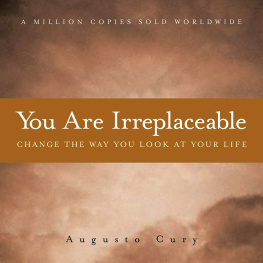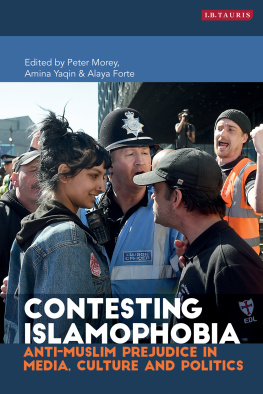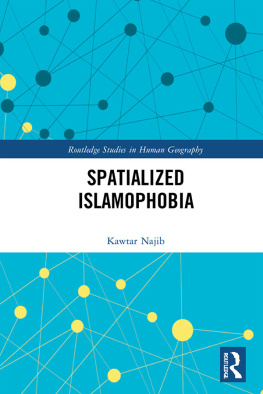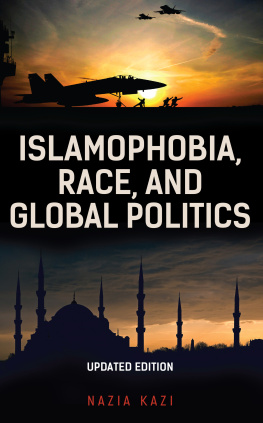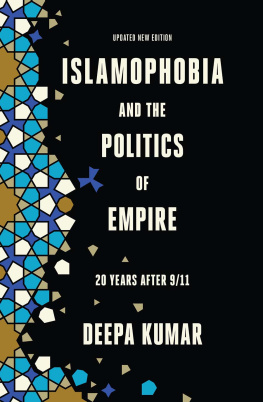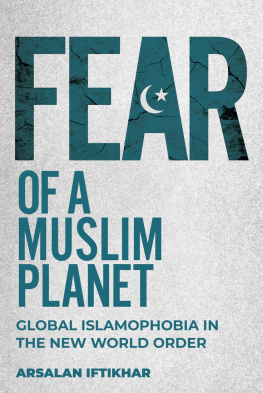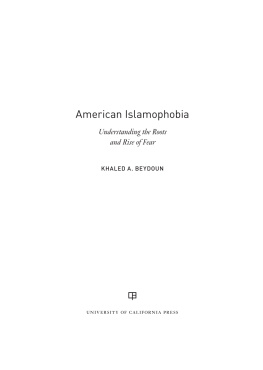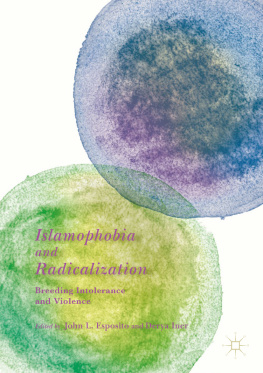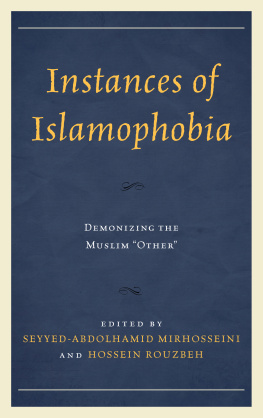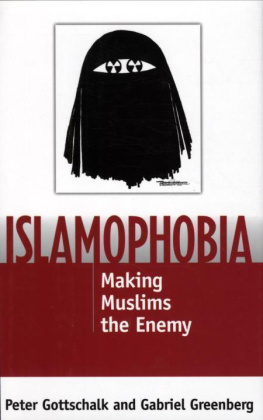Emily Cury - Claiming Belonging: Muslim American Advocacy in an Era of Islamophobia
Here you can read online Emily Cury - Claiming Belonging: Muslim American Advocacy in an Era of Islamophobia full text of the book (entire story) in english for free. Download pdf and epub, get meaning, cover and reviews about this ebook. year: 2021, publisher: CornellUP, genre: Politics. Description of the work, (preface) as well as reviews are available. Best literature library LitArk.com created for fans of good reading and offers a wide selection of genres:
Romance novel
Science fiction
Adventure
Detective
Science
History
Home and family
Prose
Art
Politics
Computer
Non-fiction
Religion
Business
Children
Humor
Choose a favorite category and find really read worthwhile books. Enjoy immersion in the world of imagination, feel the emotions of the characters or learn something new for yourself, make an fascinating discovery.

- Book:Claiming Belonging: Muslim American Advocacy in an Era of Islamophobia
- Author:
- Publisher:CornellUP
- Genre:
- Year:2021
- Rating:3 / 5
- Favourites:Add to favourites
- Your mark:
- 60
- 1
- 2
- 3
- 4
- 5
Claiming Belonging: Muslim American Advocacy in an Era of Islamophobia: summary, description and annotation
We offer to read an annotation, description, summary or preface (depends on what the author of the book "Claiming Belonging: Muslim American Advocacy in an Era of Islamophobia" wrote himself). If you haven't found the necessary information about the book — write in the comments, we will try to find it.
Emily Cury: author's other books
Who wrote Claiming Belonging: Muslim American Advocacy in an Era of Islamophobia? Find out the surname, the name of the author of the book and a list of all author's works by series.
Claiming Belonging: Muslim American Advocacy in an Era of Islamophobia — read online for free the complete book (whole text) full work
Below is the text of the book, divided by pages. System saving the place of the last page read, allows you to conveniently read the book "Claiming Belonging: Muslim American Advocacy in an Era of Islamophobia" online for free, without having to search again every time where you left off. Put a bookmark, and you can go to the page where you finished reading at any time.
Font size:
Interval:
Bookmark:
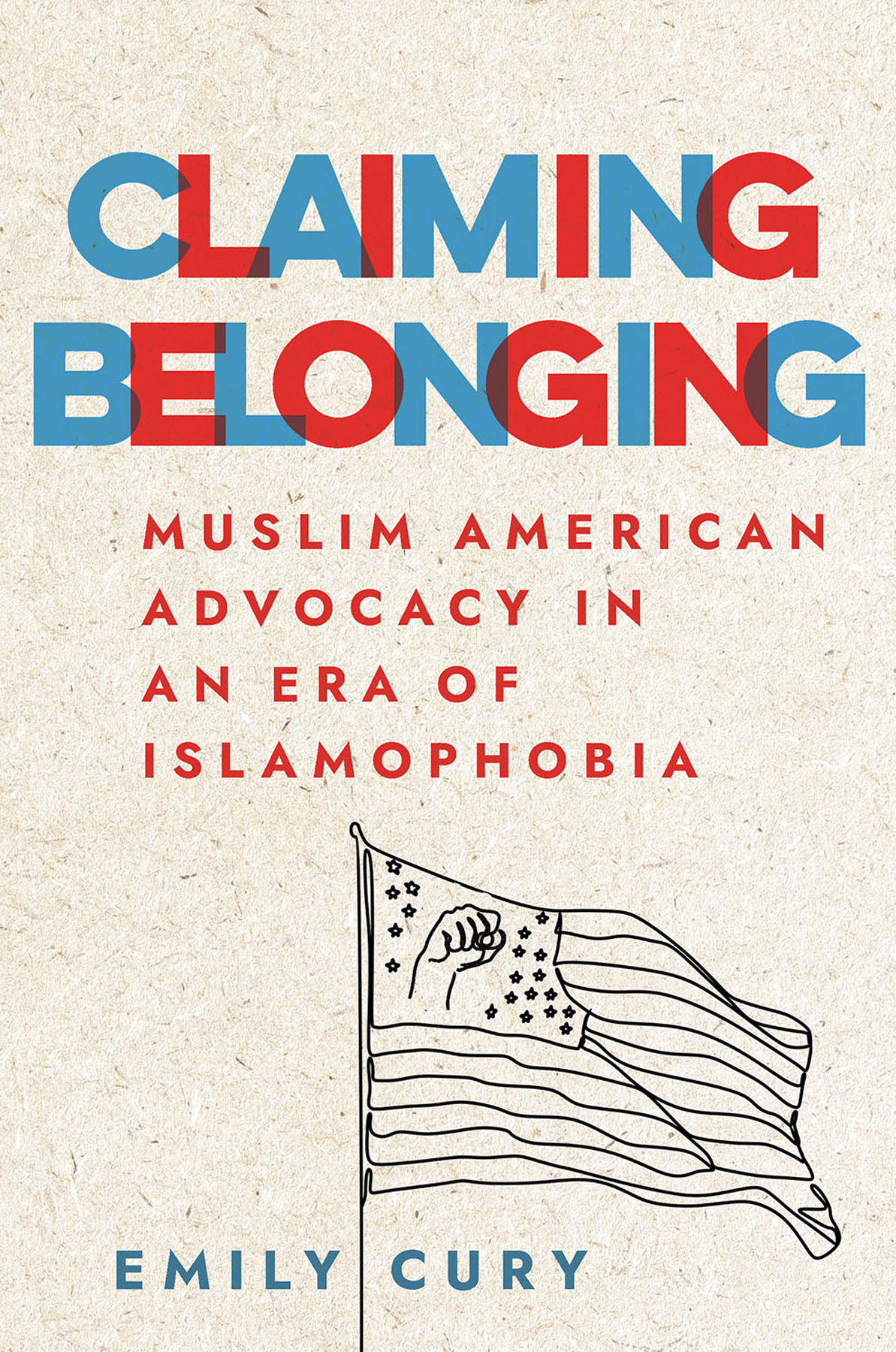
CLAIMING BELONGING
Muslim American Advocacy in an Era of Islamophobia
Emily Cury
CORNELL UNIVERSITY PRESSITHACA AND LONDON
For my father
This book went under contract when my firstborn daughter was two months old. Every major step in the writing process was intrinsically linked to her early milestones. She started crawling just as I finished writing a particularly challenging chapter. The day she uttered her first word was the same day I heard back from an interviewee, finally agreeing to speak with me. And so on. Writing a book while caring for a newborn was challenging at times, exasperating at others, and downright depressing on more than a few occasions. But it was also elucidating. A young child puts things in perspective like few things can. My daughter reminds me that change is intrinsic to life, and that so much of what makes us human is shared. I must have spoken to more strangers in the past year and a half than I have my entire adult life. In the first few months, people routinely stopped us with greetings of congratulations and welcome to the world. They genuinely wanted to see the baby, to say hello, to ask how I was feeling. Maybe I live around a lot of nice people, or maybe we are all just eager to connect. I dont know. What I do know is that her presence has made me see everything and everyone around me with a keener set of eyes, and, for that, I am grateful.
I have a long list of people to thank, as anyone who has worked on a project for almost a decade might. First and foremost, I am forever indebted to the American Muslims whose voices are featured in these pages and who gave me so much of their time and energy, even when I knew they had little of either to spare. I hope I have done your work justice. Scholars at the City University of New Yorks Graduate Center helped shape so much of my early thinking on the subject in these pages. I am deeply and tremendously grateful to my former mentor (and now dear friend) Dov Waxman, who, over the years, read and commented on multiple versions of what became this manuscript. No one has had more of an influence on my thinking, work habits, and writing than he has. I first met Dov in 2009, when I took his seminar on the Arab-Israeli conflict. He has been a constant presence in my life since then. I am forever thankful for all the hours, the coffees, the e-mails checking in. And I am particularly thankful for the friendship wealong with our beautiful spouses and childrenhave built. Thanks to Susan Woodward for scaring the bejesus out of me in her classsurviving it gave me the confidence I needed to survive early academic life and taught me how much I was indeed capable of accomplishing. Thank you to Anny Bakalian and Mehdi Bozorgmehr for the many hours we spent talking about Muslim and Arab American mobilization. Their support and kindness sustained me during those early years.
I have been fortunate enough to find friends and colleagues that, for one reason or another, believed in me and took it upon themselves to support me. When I joined Northeastern University in 2015, Valentine Moghadam took me under her wings, enveloping me with her intellect and graciousness. My office was right next door to hers, and we spent a lot of in-between time talking about our research, current events, and developments in the Middle Eastthe region we both hail from. Those conversations kindled my spirit. I thank my lucky stars that, even after I left Northeastern for a new job, our tte--ttes continue. Thank you to Denis Sullivan for teaching me so much about what being an academic entails, which we should be taught, but too often arent. I offer a very special thanks to my dear friend, Sarah A. Tobin, for her intellectual generosity, care, and guidance through the years. I have never met anyone more supportive than Sarah. She demystified what academic publishing entailed, gave me the confidence I desperately needed to pursue this undertaking, and was there for me every step of the process. I am thankful for her every day.
I owe a special debt of gratitude to my editor at Cornell University Press, Emily Andrew, for her stewardship and guidance. Emily understood what it meant to write this book while caring for a young child, and never once made me feel inadequate for it. She gave me the space I needed to focus on the work, provided constant support and advice, and was a true ally in this process. I would also like to recognize Alexis Siemon and the entire team at Cornell University Press who worked very hard to bring this book to fruition. Thank you to Jaime Jarvis for meticulously reading through the manuscript and providing me with her keen editorial eye. I am deeply appreciative to the anonymous readers for their exhaustive and excellent feedback and for investing their time to help me improve the manuscript.
In 2016, I was invited to participate in a workshop on Muslim American politics organized by Melissa Michelson, Nazita Lajevardi, and Brian Calfano. The event, held at Menlo College, was nothing short of exhilaratingas was the follow-up workshop held at UCLA the following year. I am grateful to the organizers and to my fellow workshop participants for sharing so much of their knowledge and expertise. One of the many outcomes of our workshop includes a symposium on Muslim American politics, published in 2019 in the Journal of Politics and Religion. Portions of chapter 5 previously appeared in that symposium in an article titled Contesting Islamophobia and Securing Collective Rights: Muslim American Advocacy in the 2016 Elections. Portions of chapter 6 were published in the same journal in 2017 as Muslim American Policy Advocacy and the Palestinian Israeli Conflict: Claims-Making and the Pursuit of Group Rights. Portions of chapter 2 appeared in the Journal of Diaspora Studies in 2016 as Muslim American Integration and Interest Group Formation: A Historical Narrative. These articles were the seeds for this book.
Thank you to my students at Northeastern University and Pine Manor College, where I now teach, for being an unending source of inspiration. Anyone who complains about Millennials and Generation Z must not spend a lot of time around these age cohorts. Teaching them is the greatest honor of my life. Thank you to my family and friends for giving me so much. To my mother, whose love and struggles have made me a better person; to my dear aunt and uncle, Nadia and William, for bringing me to this country and giving me a new life; and to Roula, Hussam, and Lynne for being more than siblings.
My final and deepest gratitude goes to my husband, Ziad, for his patience, encouragement, and unwavering belief in me. Thank you for prioritizing my goals and tolerating years of missed dinners, nights out, and social commitments without complaining. Thank you for brainstorming with me, for always asking the right questions, and for never tiring of talking about the subject in these pages. Your care and love sustained me and made this project possible. When the task of writing another sentence seemed intolerable, your calm and steady presence propelled me forward. Your positivity and joyfulness make everything shine a little brighter. Thank you for being on this journey with me.
It was an early spring morning in Washington, DC, and I had just arrived to attend the 2017 Annual Muslim American National Advocacy Day on Capitol Hill, an event that in recent years had become a political pilgrimage of sorts for hundreds of Muslims from across the United States. The city was in full bloom, bursting with life and color. It was even more beautiful than I remembered it from my visit a few years earlier. Feeling invigorated by my surroundings and the morning sunshine, and with plenty of time before the event started, I decided to walk. The scenery was familiar: tourists and tour buses lining the streets, young children trailing their parents, hurried young professionals tugging at their phones. But it felt different. After a short stroll from Union Station, I found myself outside the United States Supreme Court, that imposing neoclassical structure, with its wide staircase and tall Corinthian columns, where so much of who we are and what we are as a nation has been argued and decided. I paused to admire the two marble statues looming over me
Font size:
Interval:
Bookmark:
Similar books «Claiming Belonging: Muslim American Advocacy in an Era of Islamophobia»
Look at similar books to Claiming Belonging: Muslim American Advocacy in an Era of Islamophobia. We have selected literature similar in name and meaning in the hope of providing readers with more options to find new, interesting, not yet read works.
Discussion, reviews of the book Claiming Belonging: Muslim American Advocacy in an Era of Islamophobia and just readers' own opinions. Leave your comments, write what you think about the work, its meaning or the main characters. Specify what exactly you liked and what you didn't like, and why you think so.

